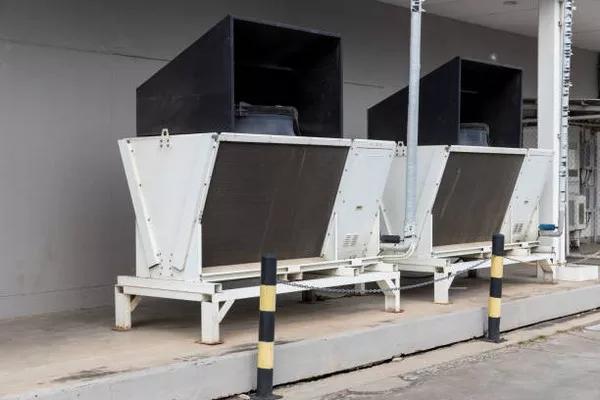Living in a mobile home offers a unique blend of flexibility and comfort, making it a popular choice for many. However, ensuring a continuous and reliable power supply can be a challenge, especially during power outages or when camping off-grid. This is where a generator becomes essential. But how do you determine the right size generator for your mobile home? This article provides a comprehensive guide to help you make an informed decision.
Understanding Your Power Needs
Before selecting a generator, it’s crucial to understand your power requirements. This involves calculating the total wattage of all the electrical appliances and systems in your mobile home. Appliances such as refrigerators, air conditioners, heaters, and microwaves have high power demands, while others like lights, fans, and small electronics require less power.
List Your Appliances: Create a list of all the electrical devices you use regularly.
Determine Starting and Running Wattage: Appliances have two wattage ratings – starting (or surge) wattage and running (or continuous) wattage. Starting wattage is the extra power required to start the appliance, usually needed for a few seconds. Running wattage is the power needed to keep the appliance running.
Here’s an example of typical wattages for common appliances in a mobile home:
- Refrigerator: Starting – 1200W, Running – 200W
- Air Conditioner: Starting – 2200W, Running – 1500W
- Microwave: Starting – 1000W, Running – 1000W
- Television: Starting – 300W, Running – 300W
- Lights: Starting – 300W, Running – 300W
Calculating Total Power Requirements
To calculate the total power requirements, add up the running wattages of all your appliances. Then, identify the highest starting wattage among your appliances. Your generator should at least match or exceed this total wattage requirement.
For instance, if the running wattages add up to 4000W and the highest starting wattage is 2200W (from the air conditioner), you need a generator that can handle at least 6200W (4000W + 2200W).
Types of Generators
There are several types of generators to consider, each with its own advantages and disadvantages.
Portable Generators: These are versatile and can be used for various purposes beyond your mobile home. They are generally less expensive but can be noisy and require manual setup and maintenance.
Inverter Generators: These are a type of portable generator but are more advanced. They provide clean and stable power suitable for sensitive electronics. Inverter generators are quieter and more fuel-efficient but can be more expensive.
Standby Generators: These are permanently installed outside your mobile home and automatically start during a power outage. They provide a seamless transition of power and can run on propane or natural gas. However, they are more costly and require professional installation.
Choosing the Right Size
The size of the generator you need depends on several factors:
Total Wattage Requirement: As calculated earlier, this is the sum of the running wattages plus the highest starting wattage of your appliances.
Duration of Use: Consider how long you need the generator to run. If you only need it for short periods, a smaller generator might suffice. For extended use, especially if living off-grid, a larger generator with higher fuel capacity is necessary.
Fuel Type and Availability: Generators can run on gasoline, propane, or diesel. Choose a fuel type that is readily available and convenient for your use. Propane and diesel generators are more fuel-efficient and have longer shelf lives than gasoline generators.
Noise Levels: If noise is a concern, especially in quiet camping grounds, opt for an inverter generator known for its quieter operation.
Portability: If you plan to move the generator frequently, consider its weight and ease of transport. Portable and inverter generators are designed for mobility, while standby generators are stationary.
Recommended Generator Sizes
Based on typical mobile home power needs, here are some general recommendations:
For Basic Needs (2000-4000W): If your mobile home usage is minimal, covering essentials like lights, a small refrigerator, and small electronics, a generator in the 2000-4000W range may be sufficient.
For Moderate Use (4000-7000W): For a more typical setup that includes air conditioning, a microwave, and other common appliances, a generator in the 4000-7000W range is recommended.
For Heavy Use (7000W and Above): If you have multiple high-power appliances or if you want to power the entire mobile home including all comfort and entertainment systems, you may need a generator that provides 7000W or more.
Installation and Safety Tips
Proper Ventilation: Always ensure your generator is placed in a well-ventilated area to prevent carbon monoxide buildup. Never operate a generator indoors or in enclosed spaces.
Maintenance: Regular maintenance is crucial for the longevity and reliability of your generator. Follow the manufacturer’s guidelines for oil changes, filter replacements, and other maintenance tasks.
Fuel Storage: Store fuel safely in approved containers and in a cool, dry place. Be mindful of fuel’s shelf life and use stabilizers if necessary.
Load Management: Avoid overloading your generator. Spread out the usage of high-wattage appliances to prevent exceeding the generator’s capacity.
Professional Installation: For standby generators, professional installation is recommended to ensure compliance with local codes and safe operation.
See Also Do Generac Generators Run On Propane
Conclusion
Choosing the right size generator for your mobile home is a crucial decision that requires careful consideration of your power needs, the types of appliances you use, and how you plan to use the generator. By accurately calculating your total wattage requirements and understanding the different types of generators available, you can select a generator that ensures a reliable power supply for your mobile home, providing peace of mind whether you’re on the road or at a stationary site. Always prioritize safety and proper maintenance to get the most out of your investment.
You Might Be Interested In

